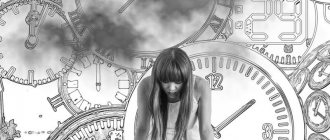.
Jealousy occurs not only in love, but also in different types of relationships: friendly, business, family. This negative feeling can ruin your life. It also negatively affects the health of a person, who often wants to cope with jealousy and mistrust, but does not know how to do it. In this case, expert advice will help.
Content:
- Who develops
- Stages of codependency
- Family situation
- How to deal with codependency
Codependency in drug addiction is a complex of disorders that arise in the close circle of the addict.
It is expressed in the inability to adequately assess the situation and make informed decisions, neglect of one’s own interests and the appearance of psychological problems. Experts in the field of addiction treatment believe that up to 85% of relatives of people who use psychoactive substances suffer from codependency.
Who develops
Codependents are individuals who are related to a drug addict through close family or family relationships. They are strongly attached to the patient or live with him. Parents, siblings, lovers and adult children of drug abusers suffer. Most often - women (grandmothers, mothers, wives, daughters).
At first, codependents try to solve the problem, then they gradually become involved and stop living their own lives.
, directing all efforts to help a relative, control and regulate other people's behavior. The psyche of a person who is in constant contact with a drug addict inevitably undergoes changes.
Anxiety, frequent stress and constant anticipation of trouble force us to live at the limit of our capabilities. A codependent has to live among deception and manipulation, make attempts to save a loved one over and over again, come up with extraordinary solutions - and again fail. Characteristics of people with codependency are:
- prolonged inability to recognize the scale of the tragedy, attempts at self-deception and complacency;
- justifications for loved ones and, as a consequence, self-justification;
- aggressive reaction to the words and actions of others indicating the existence of a problem;
- increased anxiety, constant expectation of disaster;
- periodically occurring apathy and indifference;
- attacks of self-blame and self-abasement, decreased self-esteem;
- exacerbation of existing chronic diseases and the development of new somatic pathologies due to constant stress.
The severity of codependency varies significantly and is determined by personality and upbringing. A tendency to develop this condition is observed in children from dysfunctional families and from orphanages, people who have been subjected to violence, emotionally unbalanced, anxious and sympathetic people.
Stages of codependency
Codependency in drug addiction develops according to the principle of the Karpman triangle. A person takes turns playing all the roles, moving from one incarnation to another as hope is lost and exhaustion increases.
Rescuer
- the first role that a loved one of a drug addict finds himself in. He tries to understand the relative, look at everything through his eyes, help, support, deliver, save. Changing the view of drug addiction leads to denial of the problem. The codependent believes that drug addiction is caused by external circumstances, for example, the influence of bad company, and does not take into account internal factors.
He believes that the drug addict will definitely quit
— you just need to give him money for the last dose. He tries to limit the drug addict’s communication, hoping that it will be possible to reduce the amount of the substance. He thinks that the problem can be solved without the involvement of specialists. All of these are attempts doomed to failure.
Pursuer
- the role into which a loved one moves, tired of constant deceptions and unfulfilled expectations. He understands that agreements and peace agreements do not work, so he turns to tough measures. Tries to completely control other people’s actions: checks pockets, studies information on the phone and in instant messengers, monitors the drug addict day and night. At this stage, he is ready to admit his relative to a drug treatment clinic. If the drug addict cannot be hospitalized or treatment fails, the third stage begins.
Victim
- a hypostasis in which weakness and powerlessness predominate. The codependent becomes psychologically exhausted and gives up. The addict naturally notices a change in attitude towards what is happening and begins to take advantage of it. The codependent “drowns” in guilt and shame. It seems to him that responsibility for the outcome lies with him, this plunges him into depression and aggravates his suffering.
Is jealousy always negative?
Jealousy is a kind of seasoning in relationships. If the dosage is optimal, it will give a richer “taste” to life and make it exciting. But if the feeling takes on a negative connotation, then you shouldn’t expect good from it.
Jealousy can also have a positive impact on a relationship if a person recognizes his shortcoming and changes his perspective on the relationship. But to do this, he must understand what negative effect this feeling brings.
Negative aspects of jealousy include the following factors:
- constant mental discomfort of the jealous person, because he is tormented by fear and mistrust. Often this condition leads to depression and somatic diseases;
- envy that a person shows towards others. He cannot normally perceive other people's happiness. Often this emotion pushes one to act rashly;
- dependence on a partner or loved one. A jealous person perceives insults acutely, and compliments become like a drug for him. The result is a painful relationship;
- destruction of friendships, family or love relationships, which is provoked by someone who is jealous. Rarely will a partner tolerate terror, control and baseless accusations.
Temporary jealousy that increases the passion of lovers or stimulates them to work on themselves is justified. In all other cases, you need to try to eradicate it from your soul.
Family situation
In a family with codependency and drug addiction, no one has their own interests and personal space
. A mother or wife lives through the difficulties of her husband or child, eavesdropping on his conversations, controlling his time and money, solving his problems, paying off debts and getting him out of the next mess.
There is no time or energy left for yourself. The remaining family members are abandoned. Particularly affected are children who either prematurely turn into small adults or also choose the path of dependence, because in their minds this is the only way to receive care and attention.
The family becomes dysfunctional.
Other people's feelings and personal boundaries cease to be taken into account. Everyone is “stewed” in their own pain, unable to give others love, support and care, because they themselves suffer from an acute deficiency in this area. Suspicion, mistrust and accusations breed hatred, violence, despair and a sense of hopelessness.
What does jealousy mean?
Jealousy is the desire for undivided dominance over a desired object or subject. For some people, this is a sign of feelings; for others, it is a manifestation of uncertainty about their own worth.
Jealousy, although it can shake up a relationship for a while, carries with it negativity. Often, like an ax, it cuts all the threads that connect people spiritually. Accompanied by anger, fear, helplessness.
Jealousy is closely related to the concept of competition. It can manifest itself against the backdrop of competition. It happens the other way around, when competitors are constantly seen against its background. This feeling often arises if a person experiences a lack of affection and attention from people significant to him. But when it arises constantly, then we can talk about such a character trait as jealousy. These negative emotions not only do not indicate the presence of love in relationships, they hinder their development and strengthening.
Distrust in relation to another person arises as a result of some of his actions. It is often compared with jealousy. These are concepts that are close in emotions and meanings. But it is difficult to say that they mean the same thing. Mistrust can breed jealousy. A person is often initially inclined to be suspicious of people. This problem needs to be solved within yourself.
How to deal with codependency
The first meeting with your own codependency occurs when communicating with a narcologist. People learn that it is no longer just about their loved one’s drug addiction, but also about themselves. “Corrupted” the entire family system, all participants. And now we also need to “fix” everything, including ourselves.
This is a truth that is difficult to admit and accept. At the first stage, the specialist has to explain to relatives the essence of codependent relationships
, give practical examples demonstrating the existence of special standards of behavior, convince of the inexpediency and futility of the positions of a rescuer or pursuer, or the need to exit the role of a victim.
Changing your psyche is not easy, especially when you are already tired, exhausted and have lost hope. Codependents need professional help. Individual meetings are organized for them, special groups are created, and training is provided on the correct actions in different situations.
Russian drug treatment clinics use various short-term methods, and the world-famous “12 steps” program is widely used. The essence of the stages is as follows:
- recognition of a problem that cannot be eliminated on your own;
- studying the reasons for the development of codependency;
- training in the skill of recognizing pathological patterns of behavior;
- stop shifting blame for your problems onto others;
- refusal of self-accusation and self-flagellation;
- recognition of the ineffectiveness of manipulations;
- acquiring the ability to ask for what is needed;
- teaching free self-expression;
- exploration of one’s own feelings and needs;
- mastering the skill of building healthy boundaries;
- introducing a new way of relating to others;
- developing the ability to find a balance between one’s own and others’ interests, to realize one’s own potential.
Medication methods are rarely indicated; as a rule, psychotherapeutic techniques are sufficient
. The main thing that is required of a person suffering from codependency in drug addiction is a sincere desire to change family dynamics and take an active part in improving relationships.
How to get rid of persecution mania? Methods of diagnosis and treatment.
When identifying symptoms of persecutory mania, the doctor must first determine the stage and severity of the disorder, as well as identify its connection with other diseases. For this purpose, the following diagnostic methods are used: • CT scan of the brain (BM) and skull makes it possible to identify vascular pathology, tumors, injuries and strokes, which are the root cause of the development of persecutory delusions. • MRI – scanning the brain, skull bones and nearby tissues to identify various pathologies. The safest and most informative method for diagnosing vascular and organic pathologies. • Electroencephalography (EEG) is a safe examination method for assessing the functional state of the brain. It also allows you to identify foci of excitation in epilepsy.
It should be noted that patients often come to the doctor when the disease is already advanced, severe, often with danger for the person himself and others. In this case, urgent hospitalization is required to relieve the most severe symptoms. This primarily concerns insomnia and relieving nervous tension. For this purpose, sedatives, tranquilizers and sleeping pills are prescribed. Subsequent therapy depends on the correct diagnosis, the root cause of persecutory mania, which can be identified by a thorough history taking during a conversation with the patient and his family, as well as the above examination methods.
Persecutory delusions are treated mainly with medication and are often prone to relapsing. Dissuading a person suffering from it is inappropriate, since the dissuading person can be attributed to him in the camp of enemies. Moreover, persecution mania is a mental disorder that cannot be cured by talking and saving conversations. This requires the mandatory assistance of a psychotherapist who knows both medicinal and psychotherapeutic methods of correcting the patient’s condition. The main areas of psychotherapy that are effective in treating delusions are individual cognitive behavioral therapy. Group classes are simply impossible due to total distrust of people - the patient will withdraw into himself even more and will never open up to the group. And the doctor must be as correct and careful as possible, in no way criticizing the content of delirium. He only works through anxiety, irritability, unobtrusively corrects behavior and deals with the patient’s social adaptation. Treatment and its timing are purely individual. Sometimes it can last for years, and sometimes, for example, if the disorder is caused by severe stress, the symptoms subside within a few days.
Drug therapy includes the following drugs: • Neuroleptics. • Antidepressants. • Typical and atypical antipsychotics. • General strengthening drugs. • Vitamins. • Drugs for the correction of metabolic disorders, especially in cases of delirium caused by various intoxications.
Patients usually agree to take medications and even integrate them into the system of their delusions. In particularly severe cases, electroshock therapy may be used, but this is the exception rather than the rule. As with any disease, timely seeking help from specialists at the first signs of persecutory mania is a condition for successful and effective treatment. What do you risk if you just come yourself or bring a loved one for a consultation with a psychotherapist in a private clinic? They won’t register you there, they won’t report you to the relevant authorities, but they will help dispel or confirm suspicions. In addition, the doctor can give recommendations to relatives on how to behave with the patient, and, if necessary, prescribe appropriate treatment.
Literature:
- Codependency in alcoholism and drug addiction: A manual for doctors, psychologists and relatives of patients / Valentina Moskalenko. - M.: Anacharsis, 2002. - 112 p.
- Codependency and ways to overcome it: Education. fundamentals of prevention and psychotherapy of drug addiction / L.M. Zorina; Rep. Center for the Prevention of Drug Abuse of the Population at the Cab. Ministers of the Republic Tatarstan. – Kazan: New knowledge, 2002. – 54 p.
- What is codependency and how to avoid it / L. P. Velikanova, O. V. Kaverina. — Astrakhan: Astrakh. state honey. acad., 2003. – 24 p.
Need some advice?
OR CALL A DOCTOR
CALL!
+7
Trust without checking!
Jealousy is a lack of confidence in yourself and your partner. Learn to trust him, because trust is one of the main components of love.
No matter how much we are told that we are better than everyone else, we do not believe if we do not believe ourselves. Even if everything is wonderful, each of us, if desired, will certainly find a way to poison the life of ourselves and our loved one (or beloved). It is unbearable. It is unknown how long he (she) will have the strength to endure this. Proving every day that you are not a camel is tiring and humiliating.
Fear destroys everything. The fear of losing sooner or later creates real loss in our lives. What we fear is what we attract. But everything is in our hands. Now we know what the consequences may be. Isn't this a reason to kill jealousy in yourself? Don't give her any chances, stop all thoughts about her, switch to something positive - and you will win. I believe in you!











